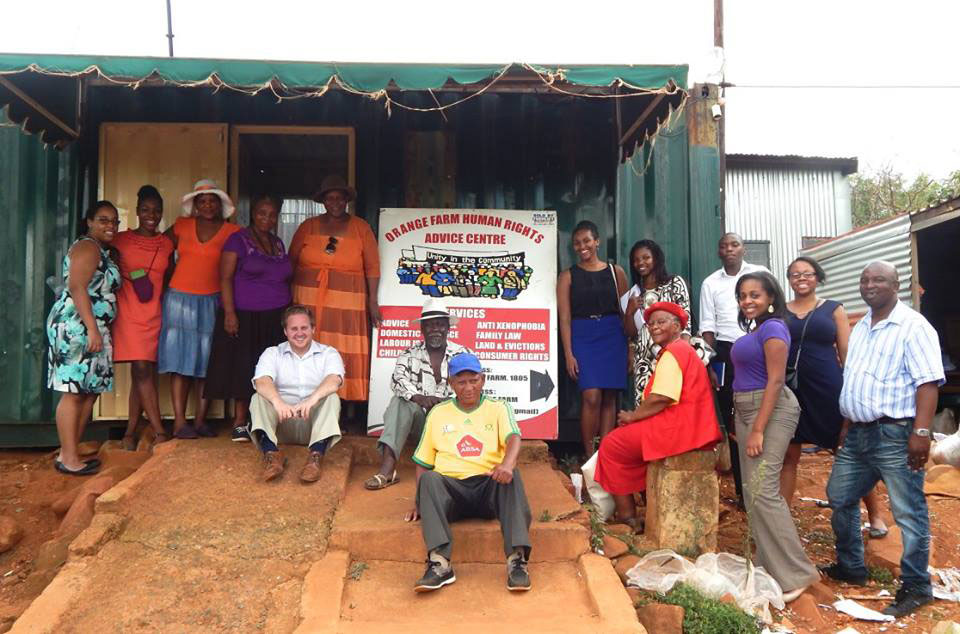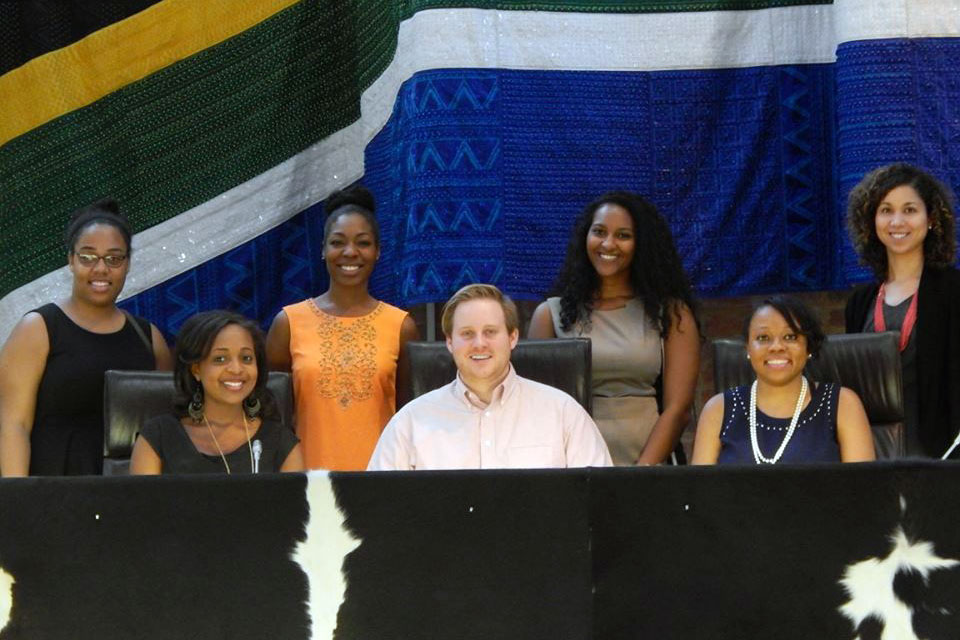Members of the University of Virginia’s Black Law Students Association recently researched and worked on human rights issues in Johannesburg, South Africa.
As part of a nine-day annual service trip over winter break, seven law students researched and wrote briefs on cases with South Africa’s Legal Resources Centre, which was co-founded by two of Nelson Mandela’s defense attorneys and functions similarly to the NAACP in the United States.
“Pro bono opportunities have been an invaluable part of my UVA Law experience, but working in South Africa added another level to those experiences,” said second-year law student Amber Strickland, the association’s community service chair. “Not only were we able to engage with real-life application of the law, but we were also able to do so in a country whose history mirrors our own in some ways.”
The Legal Resources Centre is involved in a broad scope of human rights work, including environmental issues. Because South Africa’s constitution only came into effect in 1997, often there isn’t much precedent to look back on when a case is heard, Strickland said. As a result, many considerations are more focused on fairness and justice.
Also on the trip were first-year law students Jeremy Lofthouse, Camille Grant, Kirsten Jackson, Keisha James and Deitra Jones, and second-year law student Jessica Douglas.

UVA law students meet with members of the Orange Farm community.
“When I saw that there would be an opportunity to travel abroad with students and help in a human rights area, I was sold on UVA Law. It was very rewarding to be in South Africa,” Lofthouse said.

Jeremy Lofthouse conducts research on mine closures at the Legal Resources Centre office.
“It’s interesting to look at what other countries have done and how it has worked, either positively or negatively,” Strickland said.
The UVA group assisted the LRC with researching and summarizing early apartheid cases argued by former Chief Justice of South Africa Arthur Chaskalson; investigating the possibility of regulating how close people can and should live to a decommissioned mine; and researching constitutional cases for presentations to LRC attorneys.
“My most memorable experience from the trip was speaking with local residents and learning how their community faces various socioeconomic issues and how important LRC’s work is to their community,” Grant said.

The South Africa Constitutional Court is built on a former prison site that housed Nelson Mandela and other members of the African National Congress. Some of the waiting cells used to hold prisoners have been left standing as a reminder of their past.
“The experience sparked a greater interest in studying more about the South African constitution and doing comparative constitutional research,” Strickland said. “I’m thinking more about seeking job opportunities that one day will touch on rule-of-law issues, shaping and drafting law, and the value of looking beyond the legal system we’re used to. There is so much value in what we can learn from other countries and different perspectives.”
In recent years, Black Law Students Association members have also traveled to Sierra Leone, Liberia and Uganda on service trips.
Media Contact
Article Information
March 10, 2016
/content/black-law-students-take-projects-south-africa

